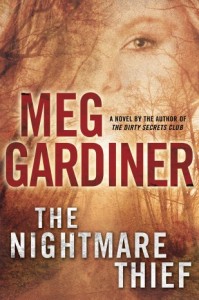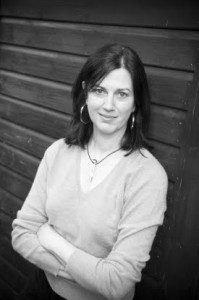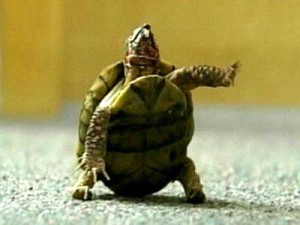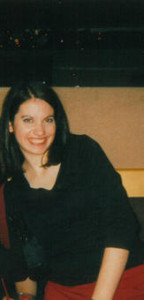Some writers love first drafts. To them, starting a novel feels like hitting the highway for a summer road trip. They toss the map out the window, crank up the tunes, let their characters take the wheel, and sit back to see where the story goes. To them a first draft means freedom: blue skies, unlimited potential.
I’m not one of those writers.
I love the part before the first draft. Brainstorming is terrific. Brainstorming means flinging ideas at the wall like spaghetti, to see what sticks. And when an idea gets under my skin—stings like a hornet, itches, keeps me up nights—I know I’m on track. I have the fuel that will drive a thriller.
That’s how I felt with The Nightmare Thief. An “urban reality game” goes wrong and traps a group of college
kids in the Sierra Nevada wilderness, fighting for survival along with series heroine Jo Beckett. That idea did it. Yep, brainstorming, and then sketching a synopsis—Jo and the kids are trapped, bad people are closing in on them, and my other series heroine, Evan Delaney, has only hours to find them—that’s fun.
But then I have to actually write the thing. And for me, writing a first draft is like pulling my own teeth with pliers: slow, painful, and messy.
The plot takes form, and it’s fat. The characters sit around a lot, thinking. When they do speak, the dialogue needs spice. Worse, everybody on the page sounds exactly the same and, worst of all, exactly like me. And all those plot twists that were so exciting to sketch (“Evan discovers a deadly betrayal”) stare back at me from the synopsis, going: Well, how?
I cringe. I couldn’t show this stinking mess to my dog, much less my editor, and oh, sweet Lord, I still have three hundred pages to write.
And I need to write them at a rate of 2,000 words a day, because I have a deadline.
That’s when I remind myself:
- My critique group has a rule for reading out loud: We all think our rough drafts are crap. It’s stipulated. So don’t waste time quailing that your piece sucks. Just read. Well, the same goes for actually drafting the crap. Just write.
- My job does not involve cleaning a deep fryer. I should stop being an ungrateful moaner. Just write.
- If I spew all these wondrously awful first-draft words onto the page, they will at least exist. And words that exist can be fixed. Words in my head cannot. Just write.
So I keep going, for months, until I reach the end. Then I run through the house with my fists overhead like Rocky, while the stereo blasts the Foo Fighters’ DOA. “I’m finished, I’m getting you off my chest…”
In the five-stage writing cycle (excitement, delusions of grandeur, panic, compulsive eating, delivery) this is known as the False Ending. Because now it’s time to rewrite.
Joy.
I can hear some of you shouting, Rewrite? Don’t make me. Stab me with a fondue fork instead. Repeatedly. Please. B
ut I mean it: Joy. As I recently heard Ken Follett explain, revising means making a book better—and who wouldn’t want the chance to make something better?
And, to be serious, I have a method. Tackle the big issues first.
This is a technique I picked up from Sol Stein’s Stein on Writing, and it has turned my editing inside out. It’s saved me months of wasted work. Stein calls it triage: Fix the life-and-death issues in a manuscript first.
-
Is the conflict stark enough?
-
Is the protagonist strong enough?
-
Does he or she face a worthy antagonist?
In other words, when rewriting, don’t simply start at page one and go through the manuscript fixing every problem as you spot it. It’s counterproductive to spend a morning fussing over sentence structure if the entire scene needs to be cut.
So I identify all the triage issues and outline a plan to address them. Then I return to my miserable first draft. I attack those fat, introspective scenes. I build in unexpected twists. I obstruct the protagonist’s path. Throw down impediments that are by turns physical and psychological, accidental and deliberate. Breakdowns. A monkeywrench. A landslide—literal or emotional. I cut endless swaths of verbiage, like so much kudzu. It’s gratifying.
Admittedly, revision isn’t all fun. I’ll wake up worrying that I’ve done insufficient research. Maybe some howlers have slipped through. (Anybody seen Lord of War? An Interpol agent strafes Nicolas Cage from a fighter jet. That kind of howler.) So I hit the reference books, and contact some experts, and revise again. And I have a fail-safe plan: write a rip-roaring story, so that if all else fails readers will miss any mistakes. Put the pedal down and nobody can see the errors as they blast through the novel.
Meanwhile the deadline continues to loom. Eventually I reach the stage known as Revise! Or! Die! It comes down to a cage fight between me and my story. With major revisions on The Nightmare Thief, I’m happy to say I won—which is to say, the story won. The lumpen first draft was flick-knifed into a sharp revision. Or sledgehammered, where necessary.
When I finished, I sent it to my editor and pitched face down on my desk. Then I sprang back up like a jack-in-the-box, thinking of all the changes I still wanted to make. Then I pitched forward on my desk again.
Eventually I sat up, picked off all the paperclips that had stuck to my face, and staggered to bed, where visions of Jo Beckett and Evan Delaney danced in my head. Well, they didn’t dance—they opened a couple of beers, clinked bottles, and put their feet up, waiting to see what I would do to them next.
I love this job.
Meg Gardiner was born in Oklahoma and raised in Santa Barbara, California. She graduated from Stanford University and Stanford law school. She practiced law in Los Angeles and taught writing at the University of California, Santa Barbara. She lives with her family near London. The Nightmare Thief is her ninth novel.









